Physical intimacy with your partner not only makes the relationship long lasting but also increases the sense of belonging towards each other. Touching, feeling and getting engulfed in your partner’s body paves way to access each other’s souls. Connection between the sheets becomes more enjoyable and passionate if connection between heart exits.

Physical intimacy is natural and is nature’s way to get two people close and call for reproduction. Physical intimacy while enjoyable, could also prove dangerous if precautions and care are not taken care of. Here it is when the topic of STDs i.e. sexually transmitted diseases comes into picture. These diseases do not reveal symptoms in germinating stages but slowly attack each and every part of your body. In this blog, let us have a look at what precisely are STDS, their causes, symptoms and how to stay protected. Let’s not allow STDs to play spoilsport in the game of pleasure.
What are STDs?
STDs stand for sexually transmitted diseases. Genital warts, genital herpes, chlamydia, gonorrhea and HIV are some of common types of STDs which generally spread through sexual intercourse. These are dangerous diseases that require proper medical attention and treatment. Mostly, these diseases spread by intimate contact. If treatment is delayed, STDs can turn fatal. HIV is incurable and can be deadly. It can be diagnosed with HIV test. STDs can spread through anal sex, oral sex and vaginal sex. If HIV affected person’s blood is transferred into the body of a healthy individual, then that healthy individual will also develop HIV. Likewise, other STDs too can affect individuals.
What are the types and causes of STDs?
Infections are a part of STDs. So, one can say that STDs are caused by certain types of bacteria, viruses and parasites. Below mentioned is a list of STDs and their respective pathogens.
-
Chlamydia
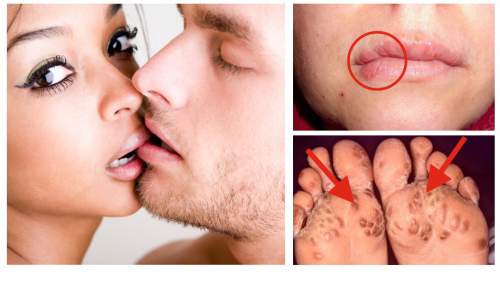
Chlamydia
It is caused by the bacterium Chlamydia trachomatis. Pathogen is transmitted via vaginal, oral, or anal sexual contact with an infected partner. Though most of the individuals do not notice any symptoms, signs like fever, weird or unusual vaginal or seminal discharge and abdominal pain could be possible symptoms.
-
Genital Herpes
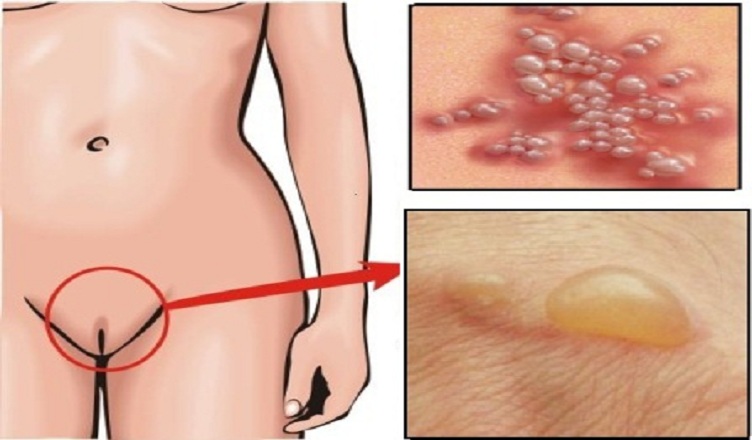
Genital-Herpes
Genital herpes is a contagious STI (Sexually Transmitted Infection) caused by the herpes simplex virus (HSV). HSV come in two different strains – herpes simplex virus type 1 (HSV-1) and herpes simplex virus type 2 (HSV-2). Both these viruses can cause genital herpes. Most of the cases of genital herpes are a result of HSV-2. Again, the signs of genital herpes are not so evident. Symptoms revealed by HSV-1 include cold sores on the lips, fever and blisters. Whereas, those revealed by HSV-2 comprise of painful blisters that appear either on or around the genitals or anus.
-
HPV
HPV stands for Human Papilloma Virus and is the most common type of STD. The disease affects both men and women and if not treated early, can become one of the cause of cancer of cervix, penis, vulva and mouth. Undergoing Pap smear test at regular time periods will help in early diagnosis.
-
Gonorrhea
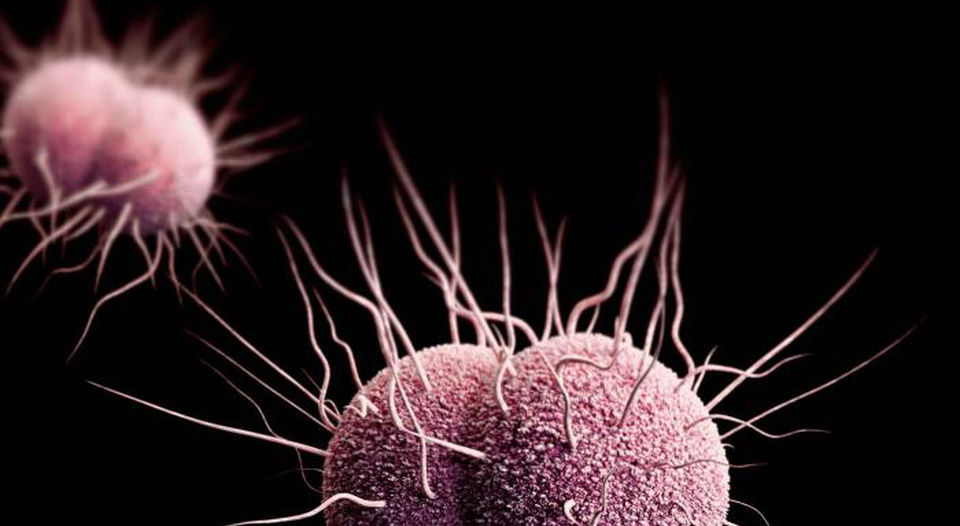
Gonorrhea
Gonorrhea is caused by the bacterium Neisseria gonorrhoeae, which can affect both men and women. The bacteria needs warm and moist areas of the body to multiply rapidly. Hence, serious complications of the disease are generally found in women because the conditions necessary for rapid multiplication of bacteria are found in female reproductive tract. Painful urination and abnormal discharge from vagina or penis are two common indications of gonorrheal infection.
-
Syphilis
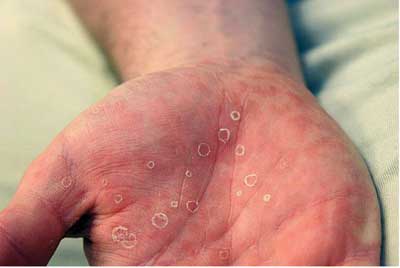
Syphilis
Syphilis is a sexually transmitted infection caused by the bacterium Treponema pallidum. The disease could be identified with characteristic appearance of sores; also called as chancres on or around penis or vagina. This could also be considered as the first sign of Syphilis. The bacteria is transmitted during vaginal, anal, or oral sex and also through direct contact with chancres. The sore is usually painless. The sore should be taken seriously as it increases likelihood of person getting infected with HIV. Also, it may heal on its own sans medical treatment. But, that does not resolve infection. The disease might spread to rest of the body; eventually leading to death.
-
Bacterial Vaginosis

Bacterial-vaginosis
Bacterial Vaginosis is a common STI that affects women who are of reproductive age. The infection occurs when the number of problematic bacteria and normal vaginal bacteria alter. If problematic bacteria outnumber and replace normal vaginal bacteria (lactobacilli), bacterial vaginosis is bound to occur. Please note that it is considered healthy and normal for vagina to have bacteria. Problem occurs when their number is altered. The most common symptom of vaginosis is thin, milky vaginal discharge that has fishy odor. The infection should be treated as it may increase chances of contracting other STDs and development of pelvic inflammatory diseases.
-
HIV/AIDS

HIV-AIDS
Human Immunodeficiency Virus (HIV) is a pathogen that causes AIDS (acquired immunodeficiency syndrome). Advanced stage of HIV infection eventually results in AIDS. The virus attacks immune system and kills white blood cells that help fight infection. Once, substantial number of white blood cells are killed, body’s ability to fight infection dwindles. People suffering from AIDS have poor resistive power and are more susceptible to fall sick due to infections that generally normal, healthy people are not prone to. AIDS can spread through unprotected sex, from pregnant mother to her child and by not changing needles that are used to inject intravenous drugs.
-
Trichomoniasis

Trichomoniasis
Trichomoniasis is caused by unicellular protozoan parasite called as Trichomonas vaginalis. The infection in majority affects young and sexually active women. The frequency of the parasite attacking men is comparatively very less. Transmission of the infection between men and women can happen when there is physical contact between the genital areas. Though symptoms of this STD are not that evident, it is better to watch out for signs like genital soreness, vaginal discharge, redness of the vagina and itching sensation in women and indication like painful and frequent urination in men.
-
Viral Hepatitis
-
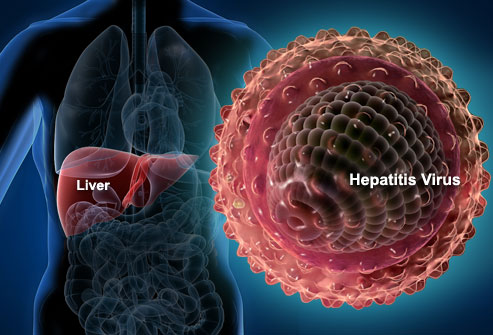
Viral-Hepatitis
Viral Hepatitis is a complicated and serious lung disorder. The reason why the disease is mentioned under the category of STDs is that the virus can be transmitted through sexual contact. Hepatitis A virus (HAV), Hepatitis B virus (HBV) and Hepatitis C virus (HCV) are the three types of viruses that cause the disease. HAV is a short-term liver infection that generally does not lead to chronic infection. HBV causes grave liver disorder that may result in lifelong infection and if not treated, may lead to liver scarring (cirrhosis), liver failure and can be fatal. HCV also affects liver and delayed treatment may result in further damage in form of liver failure or death. Vaccination can prevent HAV and HBV. However, there is no vaccination available for HCV. Precautions have to be taken when needles between patients are shared. Best practice is to dispose off old needles and use new needles every time patients need it.
Above mentioned are some common type of STDs. There are around 20 infections that can be transmitted through sexual contact. Some of them have been included in the list mentioned above.
How are STDs diagnosed?
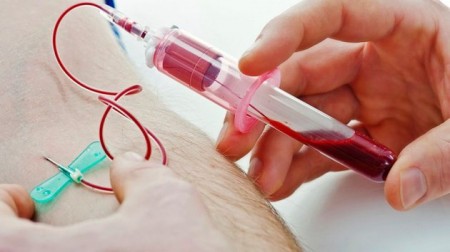
If you are sleeping with multiple partners or have had history of STD, then there are certain tests that you must undergo for diagnosis. These tests are:
Blood tests: Through blood test, HIV and syphilis can be diagnosed.
Fluid samples: If you are suffering from genital sores, then testing of fluid from genital sores would be beneficial in diagnosing STIs like syphilis test, HSV test.
Urine samples: Urine test also reveals underlying STIs.
Some screening tests also help in diagnosing STIs. It is recommended that every sexually active person should undergo STD diagnosing tests so as to curb it in early stages.
Who are at higher risk of contracting STDs or STIs?

Following people are at higher risk of contracting STIs:
- People indulging in unprotected sex are generally more prone to contract STDs. Having vaginal or anal penetrative sex with STD infected partner without the use of latex condom will significantly increase likelihood of developing STDs.
- Performing oral sex without putting on condom or dental dam can also put you at risk of developing STIs.
- Having sexual contact with multiple partners should also be considered as red flag. People having monogamous consecutive relationships are at risk too.
- If you have previously suffered from any of the STD or STI, then you are more susceptible to suffer from another STI.
- Sexually active young men and women who do not undergo any diagnosing tests for STDs are also at risk. Since most of the STIs do not exhibit any indications and it becomes too late when they are diagnosed, it is always better to get yourself tested for STIs.
- While it is very difficult to deal with shameless acts like rape or any sexual assault, it is important at under such circumstances, the victim undergoes STI screening test in order to make sure that they have not contracted any of the STIs.
- People who take alcohol or drugs are more likely to indulge in unsafe sexual activity and risky behaviors under the influence of those substances.
- Men who ask doctors for some of the prescribed drugs like Viagra (sildenafil), Levitra (vardenafil) and Cialis (tadalafil) etc. to treat erectile dysfunction, have higher chances of STIs. So make sure that you update yourself on safe sex practices.
- Used needles that are exchanged during injecting of drugs may also spread STIs.
How to prevent STDs?
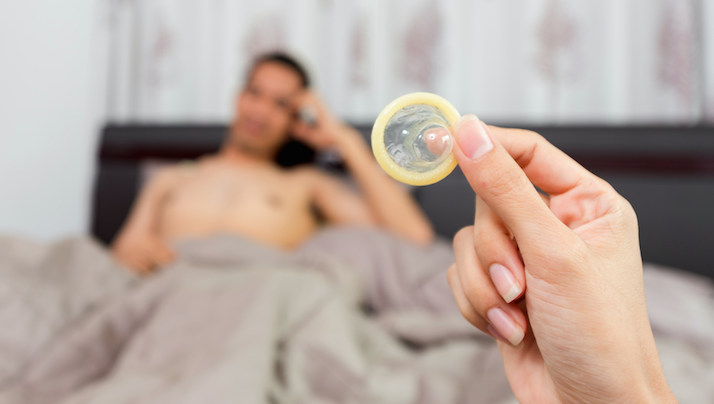
STDs are definitely preventable. One has to practice certain precautions and take proper care while having sex so that both you and your partner are safe from STDs. Below mentioned are few things that will help you in keeping the STDs at bay.
- Have sex only with a trusted partner. Having multiple sex partners increases likelihood of contracting sexually transmitted diseases. Also, do not have sex with a person who has had multiple partners. This is one of the best and most reliable method of preventing STDs.
- Prostitutes or people who trade money for sex are at the highest risk of contracting STDs as their job profile requires them to have sex with many people.
- Make use of condom while having sex. Though making use of condom does not completely eliminate chances of contracting STDs, it at least reduces them. A small tear in condom can cause leakage of semen that may eventually lead to STDs. Hence, make sure you buy a good quality latex (made of rubber) condom. Learn to use condom correctly. The only time unprotected sex is safe in terms of preventing STDs is when you and your partner have sex only with each other and it is been few months since you and your partner tested negative for any type of STD.
- Vaccination for hepatitis B which comes in series of three shots also helps in preventing STDs.
- Get tested for HIV at least once in six months.
- Wash your intimate parts thoroughly before and after intercourse. Also, always keep those areas clean and hygienic. If you get any genital infection, show it to doctor as early as possible to prevent further damage.
- Do not ever share your undergarments or towels with anyone. It increases chances of infections.
- People suffering from the problem of alcohol or drug abuse should seek immediate help as they are more likely to indulge in unsafe sex under the influence of drugs and alcohol.
Following above precautions will help in reducing chances of contracting STD. Implementing safe sex practices will help you to enjoy and have fun between the sheets in the long run. So, it is better to update your knowledge and increase pleasure in beds not STDs.